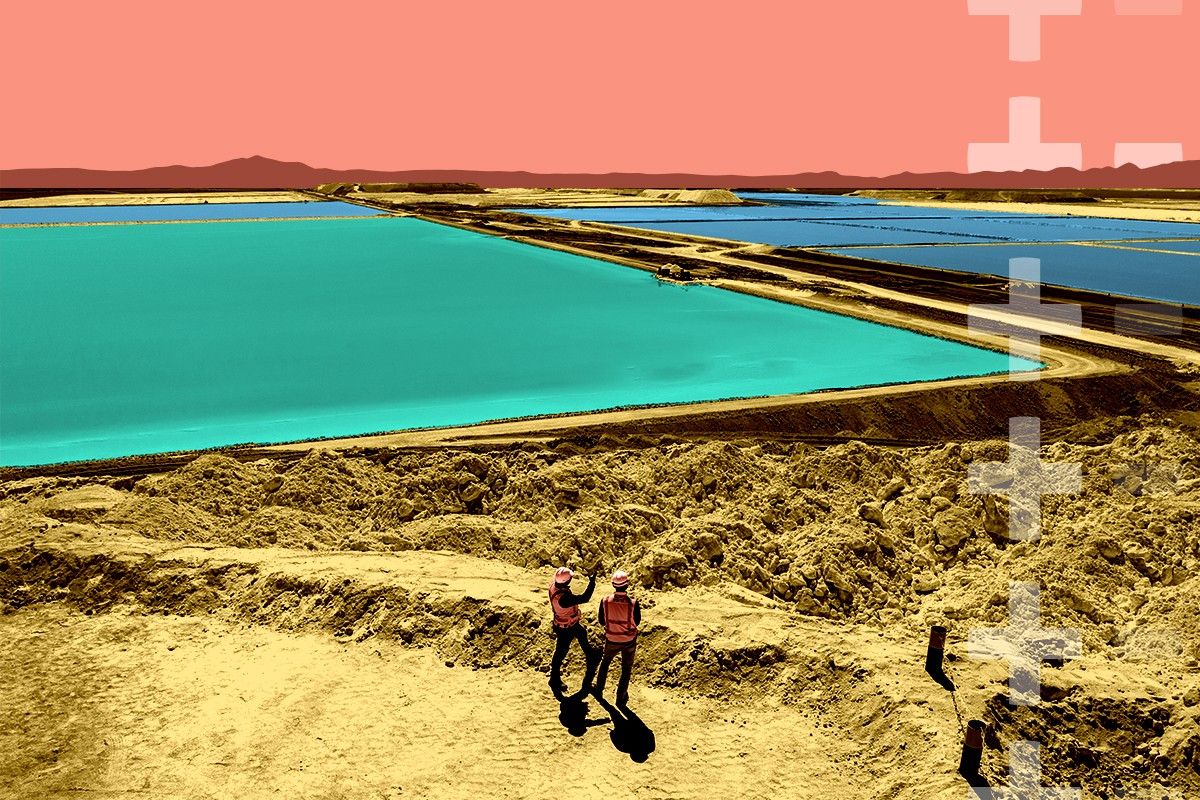In a move that shocked Wall Street, Chilean President Gabriel Boric announced last week that his country will nationalize its lithium industry. “This is the best chance we have at transitioning to a sustainable and developed economy,” Boric said. “We can’t afford to waste it.”
The stakes are big. Behind only Australia in production, Chile is the world’s second-largest producer of lithium, an essential mineral used in the batteries that power electric vehicles and other important parts of the energy transition. Chile is also home to the world’s largest known reserves of lithium. But Boric’s move goes deeper than domestic concerns. Taking control of the country’s lithium market underscores recent reporting that his administration is in negotiations to create a kind of OPEC for lithium with Argentina and Bolivia, neighbors in the lithium-rich region, and perhaps Brazil or Mexico as well. Together, Argentina, Bolivia, and Chile control over 65% of the world’s lithium reserves.
Seeing as global demand for the mineral is projected to grow 40 times over by 2040, a unified front over the price of such a key mineral could enrich and empower these Latin American countries, just as the Organization of the Petroleum Exporting Countries, or OPEC, has enriched and empowered a handful of oil-producing nations. But whether Argentine, Chile, and Bolivia can pull it off is a different story.
On the plus side of the ledger is ideological cohesion.
“Governments believe that owning the minerals gives them better control over royalties, taxes, and how much of the money will actually flow back into social programs, and eventually down to the people,” Ryan Berg, a senior fellow with the Americas Program at the Center for Strategic and International Studies, told me. “It’s easiest to get cooperation when there’s ideological convergence in the region.”
Indeed, seven of Latin America’s most populous countries are now run by leaders with some form of leftist tilt, explained Berg, and many of these countries are moving to nationalize their immense resource wealth in the name of economic and social development. Last April, Mexico approved the nationalization of its nascent lithium industry “for the benefit of the Mexican people.” For decades, Bolivia has aggressively secured governmental control of the resource — even at the cost of denying courtings from the West. A recent $1 billion deal with China to explore its vast lithium deposits may have to face Bolivian law, which largely forbids foreign firms from extracting lithium.
But these similarities paper over some important differences.
“I personally think [an OPEC for lithium] will be hard to achieve,” said Henry Sanderson, who is the executive editor of Benchmark Mineral Intelligence, during a panel discussion hosted by the Wilson Center’s Latin America Program. “Australia is going to maintain its position as the biggest lithium producer this decade. It will be hard to completely control worldwide supply.”
Sanderson is not alone here. Experts who spoke to me collectively argued that Latin America had too many divergent economic priorities, too many foreign companies posing powerful deals, and too many environmental setbacks in the lithium extraction process to ever exert the kind of power over lithium prices that OPEC has traditionally had with oil.
“If [South America] demanded unacceptably high prices, or demanded that manufacturers moved to South America, there would be an enormous political backlash as the rest of the world condemned the ‘blackmail’ stopping the world transitioning to a clean, zero carbon, sustainable future,” William Tahil, who is the research director at Meridian International Research, told me in an email.
There’s also the environmental impact of mining the world’s lithium reserves to meet global demands. By some estimates, lithium demand could exceed global supply by as early as 2025 “unless sufficient investments are made to expand production.” Unlike Australia, whose lithium reserves are extracted from rock, Latin America’s lithium is derived from salt brine, which poses myriad environmental challenges that are both time-intensive and costly. For example, it takes a staggering 2.2 million liters of water to produce one ton of lithium from brine. Chile and Argentina are the world’s largest producers of lithium from salt brine.
It’s not yet clear how mass-extraction of lithium could impact water levels in this already drought-prone environment. What scientists know right now is that lithium brine pumping can impact the natural evaporation of Latin America’s salt flats, wreaking havoc on the area’s water balance and disrupting fragile ecosystems. As we see in Brazil, which is in the middle of triaging its burgeoning mining industry to balance economic demands for minerals with protecting the Amazon rainforest, there are political costs to environmental destruction.
Meanwhile, new players are emerging that would further dilute a lithium cartel’s price controls. India just discovered its first-known lithium reserve in February, which is already being auctioned off to the highest bidder. China, filling the gaping power vacuum left by Western powers in Taliban-controlled Afghanistan, plans to invest a whopping $10 billion in the Central Asian country’s lithium mines. Meanwhile, lithium resources are ample across the African continent — and full of economic potential that both the United States and China already covet.
Still, experts maintain that Latin America could remain comfortably among the ranks of the world’s top lithium suppliers — for now.
“Latin America is a favorable place for Chinese companies, and along with Africa,” said Benchmark Mineral Intelligence’s Sanderson. “I think this is where [China sees] future lithium supply coming from in this decade.”











